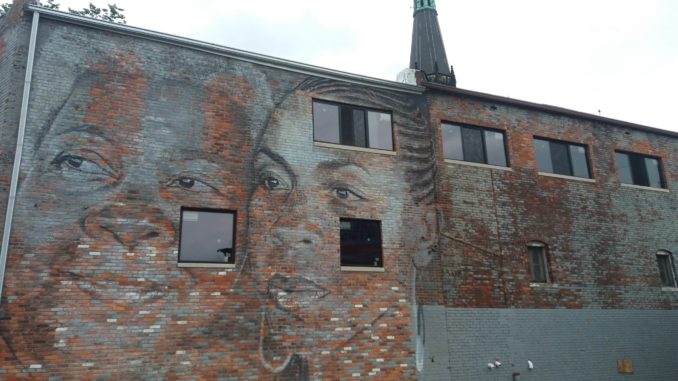
BY: John Loewenthal, Oxford Brookes University
It is increasingly acknowledged that many white people find it uncomfortable to talk about race – especially to large groups. As a white Brit I found this out a few years ago – to my horror – when I went to present findings from my master’s research at a conference in Cardiff on research methods. I had recently returned from fieldwork in New York City in which I had held a series of ‘group conversations about travel, the future, and the world’ with young people huddled around a world map. I was excited to speak about the methodological stimulation of the map in eliciting rich, spontaneous conversations about history, race, politics, inequality, education, and mobility. The one-day event was set in a grand room and was more heavily attended than I had anticipated – with around 50 attendees. During my presentation, I had meant to say, ‘most of the participants were black: either African American or else the children of parents who had migrated to New York from Africa or the Caribbean’. And yet as I came to say the line, the cat got my tongue and a humiliating stammer ensued as though the opening word ‘black’ was charged with a kind of unspeakable symbolism. Since, I have noticed that white scholars speaking to audiences often use euphemisms such as BME or people of colour, hence skirting around the specificity of race when sharing a room. I have also been exposed to the propensity at conferences of reading from a script over speaking from the heart – especially in the US – hence holding on to text, even when eye to eye.
Elsewhere, I am now in my second year of teaching an online course, Social Anthropology: An Introduction . Each cohort of 32 students is made up of adults of all walks of life logging in from time zones across the world. In mediating discussion or musing on current affairs or else critically reflecting on anthropology’s geopolitical whiteness, I find myself often speaking about race – a topic of historical and contemporary significance that is both serious and simply interesting. And yet, I realise that the ease with which I speak is made possible from the insulation of being behind a computer. The same is the case for academic writing as I presently write up my doctoral fieldwork, also set in the heavily racialised United States. Still today, in comparison to my online teaching and written work, when talking about race to a classroom or at a conference, I find myself more nervous about the words that I use.
The technology of writing is therefore enabling what many would see as a very basic and necessary part of teaching anthropology: honest dialogue about race, without obfuscation. The contrast between written confidence and oral hesitation is certainly interesting to note. Yet more practically, what strengths and weaknesses are at play? The capacity of writing to allow people to consider their thoughts and present an opinion more boldly is a dominant feature of the internet. Barriers to oral expression hence affect more than just white racial fragilities as people of all backgrounds use online platforms to discuss concerns about politics or identity which are clearly significant to them and which they may not feel they can express so directly in person. Similarly, for my online course, I would argue that the more scope for students and teacher alike to represent what they want to say without window dressing or distortion, the better.
And yet, while I reflect upon and thank the protection of the computer screen for helping one find one’s voice, this digital bunker – and writing in general – should be treated with caution. Non-white scholars do not generally get so anxious at the prospect of discussing race to an audience. In Western contexts, it may be a reality which they negotiate daily as opposed to something that is repressed and mortifying if rendered audible. Surely, then – even as white scholars such as myself use the benefits of written technology to engage racial issues in their research and teaching – the aim, as Freud’s ‘talking cure’ might encourage, should be to ‘remember, repeat, and work through’. By learning to talk out loud in an embodied way, we might be able combat, not divert, identity-based awkwardness so that we can all speak in the same room, face to face.
John Loewenthal, Oxford Brookes University
@jl_loewenthal

Leave a Reply
You must be logged in to post a comment.